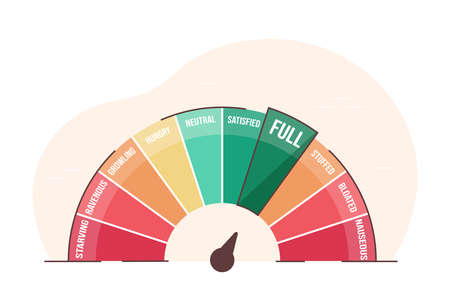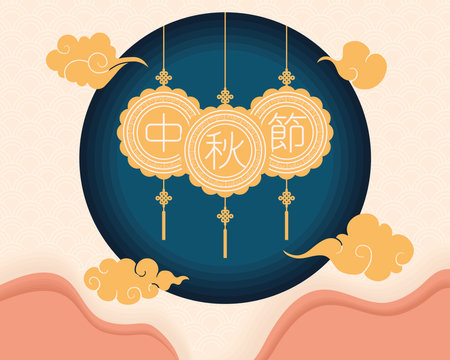Understanding Clutter Through the Lens of Feng Shui and British Minimalism
Clutter is more than just an aesthetic concern; it profoundly shapes our mood, efficiency, and overall sense of wellbeing. To appreciate the deeper implications of clutter in our lives, it is valuable to consider two distinct yet complementary perspectives: Feng Shui and British minimalism. Both philosophies offer thoughtful frameworks for understanding how the spaces we inhabit influence our daily experiences, but each interprets the impact of clutter through a unique cultural lens.
Feng Shui, an ancient Chinese art, views clutter as a disruptive force that blocks the natural flow of energy—or “chi”—within a space. According to this philosophy, excess possessions and disorganisation can create stagnation, leading to feelings of stress or being overwhelmed. The principle is simple: when energy cannot circulate freely due to physical obstacles, it may contribute to mental and emotional blockages as well.
British minimalism, on the other hand, is rooted in notions of restraint, practicality, and understated elegance. This approach reflects a cultural appreciation for orderliness and simplicity that has deep historical roots in British society. In this context, clutter is seen as a barrier to clarity and calm—a distraction from what truly matters in daily life. By prioritising essential items and eliminating unnecessary excess, British minimalism seeks to foster environments that support relaxation and clear thinking.
Together, these philosophies highlight the subtle ways in which our surroundings shape our state of mind. Whether you are inspired by the energetic harmony sought in Feng Shui or the quiet sophistication of British minimalism, understanding these underlying principles can provide meaningful guidance as you embark on your seasonal decluttering journey.
2. The Benefits of Seasonal Decluttering
Seasonal decluttering is more than just a spring-cleaning ritual; it’s an intentional practice that draws upon both British habits and the energy-focused philosophies of Feng Shui. In the UK, the changing seasons prompt natural shifts in lifestyle—think swapping winter coats for summer linens or refreshing interiors as daylight hours lengthen. Aligning your decluttering efforts with these seasonal rhythms makes the process feel purposeful and manageable, rather than overwhelming.
Why Declutter Seasonally? As each season brings different weather, activities, and needs, our homes often accumulate clutter specific to those periods. For example, winter accessories and festive decorations may linger long after their use, while summer brings sporting equipment or garden tools into daily life. Regularly reassessing what you own at the start of each season helps ensure your living spaces remain relevant, functional, and serene.
British Habits & Feng Shui Principles
| British Seasonal Habits | Feng Shui Principles | Combined Benefit |
|---|---|---|
| Spring cleaning and autumn clear-outs are traditional times for home refreshes. | Encourages removal of stagnant energy by letting go of unused items and allowing fresh chi (energy) to flow. | Keeps the home vibrant and energetically balanced throughout the year. |
| Adapting wardrobes and storage according to weather changes. | Supports harmonious organisation by ensuring all belongings have a purpose and place. | Makes everyday routines smoother and reduces mental clutter. |
| Cherishing space for gatherings during holidays or key seasonal events. | Emphasises uncluttered communal areas that foster social connection and positive energy exchange. | Enhances wellbeing for residents and guests alike. |
The synergy between British minimalism and Feng Shui lies in their shared emphasis on clarity and intention. Where British culture values practicality and restraint, Feng Shui offers a framework for understanding how physical surroundings influence emotional states. By embracing seasonal decluttering, you cultivate a home that not only looks tidy but also feels uplifting—a sanctuary that evolves gracefully with every season.

3. Practical Decluttering Strategies Inspired by Feng Shui
Feng Shui, an ancient Chinese philosophy centred on harmony and energy flow, offers a thoughtful approach to decluttering that can be seamlessly adapted to a British minimalist context. To begin, assess each room with fresh eyes at the start of each season. Ask yourself whether the items you own genuinely serve a purpose or bring joy—echoing both Feng Shui’s principle of harmonious living and the British tendency towards practical minimalism.
Step 1: Sort Items According to Usefulness and Sentiment
Divide your belongings into three categories: essentials, sentimental keepsakes, and non-essentials. Essentials are things you use daily or weekly. Sentimental items are those that hold meaningful memories but might not have everyday use. Non-essentials are neither useful nor cherished; these can often be donated or recycled.
Step 2: Apply the Five Elements for Balance
Feng Shui emphasises five elements—wood, fire, earth, metal, and water. As you organise, aim for balance by ensuring no single element dominates a space. For example, incorporate wooden frames for warmth, metal accents for clarity, and plants to bring in life and vitality. In true British fashion, avoid over-accessorising; let each piece speak for itself while contributing to the room’s overall harmony.
Step 3: Maintain Clear Pathways and Open Spaces
Energy (or “chi”) must flow freely for a home to feel welcoming and calm. Avoid blocking walkways with excess furniture or decorative clutter—a practice that aligns well with the open layouts favoured in contemporary British interiors. Regularly reassess these pathways with the changing seasons to keep spaces inviting and efficient.
Step 4: Seasonal Rotation and Mindful Disposal
Rotate décor and clothing according to season—a common practice in UK households due to variable weather. Store out-of-season items neatly out of sight but labelled for easy access when needed. When parting with possessions, choose sustainable options like donating to charity shops or local reuse schemes, reflecting both Feng Shui’s respect for energy flow and Britain’s commitment to environmental responsibility.
By integrating these Feng Shui-inspired strategies into your seasonal decluttering routine, you’ll cultivate a home environment that feels balanced, purposeful, and distinctly British in its understated elegance.
4. Embracing British Minimalism: Mindful Curation of Belongings
British minimalism, with its roots in simplicity and practicality, provides a powerful framework for managing clutter seasonally. Unlike more austere forms of minimalism, the British approach values comfort, heritage, and functionality, guiding us to curate belongings thoughtfully rather than indiscriminately discarding items. The goal is to create calm, inviting spaces that reflect both personal history and a sense of order.
Mindful Decisions: What to Keep, Donate, or Discard
When applying British minimalism, decision-making focuses on the usefulness and emotional significance of each item. This process involves honest reflection and the willingness to part with things that no longer serve a purpose or bring joy. Consider the following approach:
| Category | Questions to Ask | Action |
|---|---|---|
| Keep | Is it used regularly? Does it have sentimental value? Does it fit my current lifestyle? | Retain and store neatly |
| Donate | Is it in good condition but unused? Could someone else benefit from it? | Pass on to charity shops or local organisations |
| Discard | Is it broken, expired, or beyond repair? | Recycle or dispose responsibly |
Tangible Tips for Creating Calm Spaces
- Edit Ruthlessly: Review possessions room by room. Limit decorative items to meaningful pieces that evoke positive memories or serve a clear function.
- Select Neutral Palettes: Opt for subdued colours—think soft greys, creams, and muted blues—to establish a tranquil atmosphere typical of British interiors.
- Invest in Storage Solutions: Use classic storage furniture such as ottomans or built-in shelving to keep essentials hidden yet accessible.
- Create “Drop Zones”: Designate areas near entrances for shoes, coats, and keys to prevent everyday clutter from spreading.
- Practice Seasonal Reviews: At the start of each season, reassess what you own; donate winter coats in spring or old beach gear in autumn.
The British Minimalist Mindset
This philosophy isn’t about emptying your home but about curating it intentionally. By regularly evaluating what adds value to your life and environment, you cultivate not only a tidier space but also greater peace of mind—a hallmark of both Feng Shui and British minimalism.
5. Sustainable Discarding: Eco-Friendly Tips the British Way
Decluttering responsibly is as essential as organising your space, especially when aligning with British minimalism and the mindful principles of Feng Shui. In the UK, sustainable discarding involves more than simply binning what you no longer need; it’s about ensuring items are thoughtfully rehomed or recycled to benefit both community and environment.
Utilise Local Donation Schemes
Many British communities offer local donation points for clothing, books, toys, and small household goods. Council-run drop-off bins are commonplace and typically support charitable causes. Before discarding items, check with your local council for a list of recommended donation schemes or collection days to ensure your clutter finds a new purpose.
Support Charity Shops
Charity shops such as Oxfam, British Heart Foundation, and Cancer Research UK are cornerstones of British high streets. These shops welcome good-quality donations, allowing you to pass on possessions while supporting vital social initiatives. Remember to donate only clean, usable items; damaged goods can often be recycled separately.
Engage with Recycling Programmes
The UK boasts robust recycling infrastructure. Many councils collect electronics, textiles, and even furniture for recycling or repurposing. For items not suitable for reuse, consult your local authority’s recycling centre guidelines. Additionally, specialist programmes such as Freecycle or Facebook Marketplace facilitate direct giving within your neighbourhood, reducing waste and fostering community spirit.
Avoid the Landfill: Mindful Disposal Matters
Both Feng Shui philosophy and British minimalism advocate for conscious living—so resist the temptation to send clutter straight to landfill. By leveraging established donation channels and recycling options, you not only clear your space but also contribute positively to society and the planet.
6. Maintaining a Clutter-Free Home All Year Round
Sustaining an organised and serene living space requires more than a one-off declutter; it involves adopting ongoing routines and mindful rituals, inspired by both Feng Shui principles and British minimalism.
Seasonal Check-Ins: The Foundation of Consistency
British minimalism often champions regular, seasonal reviews of our possessions. At the start of each new season—spring, summer, autumn, and winter—set aside time to reassess your belongings. Ask yourself: Does this item still serve a purpose or bring joy? This cyclical approach prevents clutter from re-accumulating and ensures your home remains functional and harmonious.
Feng Shui Rituals for Harmony
Incorporate simple Feng Shui practices into your routine to maintain balance. Open windows daily to refresh energy, regularly dust corners to prevent stagnant chi, and keep entryways clear as a symbolic gesture of welcoming new opportunities. By mindfully tending to your environment, you nurture positive flow throughout the year.
Daily Habits: Small Actions, Big Impact
Borrowing from British minimalist wisdom, embrace the mantra “a place for everything, and everything in its place.” Take five minutes each day to put items back where they belong—a quick tidy-up can prevent overwhelm and foster long-term order. Make your bed each morning and clear surfaces before bedtime; these micro-habits anchor a sense of calm and control.
Monthly Reflection & Letting Go
Once a month, reflect on areas that tend to gather clutter—such as kitchen counters or hallway shelves. Apply Feng Shui’s philosophy of letting go: release objects that no longer align with your present self or goals. In true British style, consider donating unwanted items to local charity shops, giving them a second life while supporting your community.
Cultivating Mindfulness
Ultimately, maintaining a clutter-free home is about cultivating awareness. By weaving together the intentionality of British minimalism with the energetic mindfulness of Feng Shui, you create not just a tidy house but a nurturing sanctuary that evolves with you throughout the seasons.

